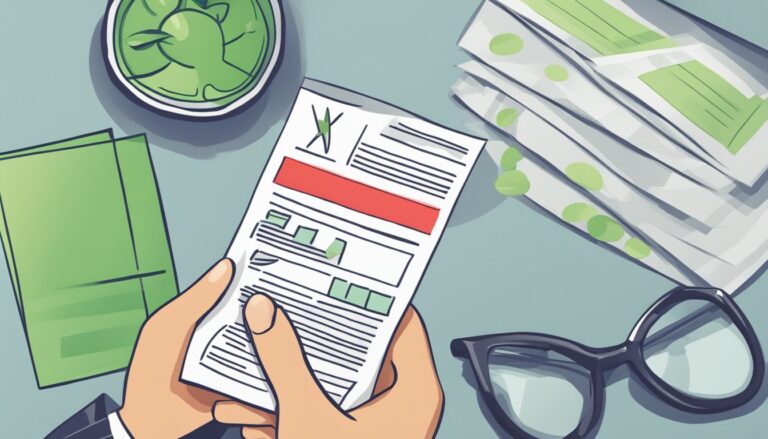Even the best writers stumble over spelling. English is full of silent letters, awkward vowel pairings, and words that look nothing like they sound. Throw in the occasional difference between British English spelling vs. American English spelling, and it’s no wonder common misspellings creep into even the best writing.
This guide rounds up 50 of the most commonly misspelled words in English, presented in British English with their common spelling mistakes – and the American variants where they differ. Each entry comes with a quick memory trick to help you remember it for good.
Bookmark it, print it out, or keep it open in a tab for when those “Is that right?” moments strike.
50 Commonly Misspelled Words: At a Glance
| Word | Correct spelling | Common misspellings |
|---|---|---|
| Accommodate | accommodate | accomodate, acommodate |
| Acknowledgement | acknowledgement (American: acknowledgment) | acknowlegment, acknowlagement |
| Acquire | acquire | aquire, aquier |
| Argument | argument | arguement |
| Believe | believe | beleive, belive |
| Calendar | calendar | calender, calandar |
| Cemetery | cemetery | cemetary, cematery |
| Changeable | changeable | changable, changeble |
| Colleague | colleague | collegue, coleague, collaegue |
| Column | column | colum, colomn |
| Commitment | commitment | comitment, committment, comitmment |
| Conscience | conscience | concience, consience, conschence |
| Conscious | conscious | concious, consious, conscius |
| Consensus | consensus | concensus, consenssus, consencus |
| Definitely | definitely | definately, definatly, definitley |
| Discipline | discipline | disipline, descipline, displine |
| Embarrass | embarrass | embarass, embaras |
| Exceed | exceed | excede, exseed |
| Existence | existence | existance, existents |
| Familiar | familiar | familar, familier |
| Fluorescent | fluorescent | flourescent, florescent |
| Foreseeable | foreseeable | forseeable, forseable |
| Government | government | goverment, govenment |
| Guarantee | guarantee | garantee, guarentee, gaurantee |
| Harass | harass | harrass, haras |
| Height | height | heigth, heigt |
| Independent | independent | independant, indpendant |
| Knowledge | knowledge | knowlege, knoledge, knowldge |
| Licence | licence (American: license) | lisence |
| Maintenance | maintenance | maintainance, maintanance |
| Manoeuvre | manoeuvre (American: maneuver) | manuver, manuever, maneuvre |
| Millennium | millennium | milenium, millenium |
| Necessary | necessary | neccessary, necesary |
| Noticeable | noticeable | noticable |
| Occasionally | occasionally | ocassionally, occassionally, ocasionaly |
| Occurrence | occurrence | occurence, ocurrence |
| Parallel | parallel | paralel, parralel, parrallel |
| Pastime | pastime | passtime, pass time |
| Perseverance | perseverance | perserverance, perseverence, persiverance |
| Personnel | personnel | personal, personel |
| Playwright | playwright | playwrite, playrite |
| Possession | possession | posession, possesion |
| Privilege | privilege | privelege, priviledge, privelage |
| Publicly | publicly | publically |
| Receipt | receipt | reciept, recipet |
| Receive | receive | recieve, recive |
| Recommend | recommend | reccommend, recomend, reccomend |
| Referred | referred | refered, reffered |
| Relevant | relevant | relevent, relavent, revalent |
| Restaurant | restaurant | resturant, resteraunt, restaraunt |
50 Commonly Misspelled Words in English: Explained
1. Accommodate
This word is infamous for its two sets of double letters. Many people drop one “c” or one “m” without realising. Picture a big hotel that can “accommodate” both doubles — two c’s and two m’s — like extra beds in a room.
- Meaning: Provide lodging, space, or enough room for something or someone.
- Common misspellings: accomodate, acommodate
- Correct spelling: accommodate
2. Acknowledgement
Between silent letters and UK/US differences, this one is a minefield. In British English, we keep the “e” after the “g”; Americans drop it. The silent “g” stays in both.
- Meaning: Recognition or acceptance of something.
- Common misspellings: acknowlegment, acknowlagement
- Correct spelling (UK): acknowledgement
- American spelling: acknowledgment
3. Acquire
The “qu” + “ire” combination trips people up. Think ac + quire — like “require” without the “re.”
- Meaning: To gain, get, or obtain something.
- Common misspellings: aquire, aquier
- Correct spelling: acquire
4. Argument
You start with “argue,” so it’s tempting to keep the final “e” when adding “-ment,” but you drop it.
- Meaning: A disagreement or a set of reasons supporting a point.
- Common misspellings: arguement
- Correct spelling: argument
5. Believe
Classic “i before e” case — it follows the rule, but people still swap them. Think: “I believe I before e.”
- Meaning: To accept as true or have confidence in something.
- Common misspellings: beleive, belive
- Correct spelling: believe
6. Calendar
People often type “calender” or “calandar.” Break it down into cal-en-dar.
- Meaning: A chart showing days, weeks, and months of the year.
- Common misspellings: calender, calandar
- Correct spelling: calendar
7. Cemetery
Sounds like it should end in “-ary,” but it’s “-ery.” There are three “e”s in cemetery — one for each syllable.
- Meaning: A place where the dead are buried.
- Common misspellings: cemetary, cematery
- Correct spelling: cemetery
8. Changeable
Most words drop the “e” before “-able,” but here it stays to keep the “g” soft.
- Meaning: Able to change or be changed.
- Common misspellings: changable, changeble
- Correct spelling: changeable
9. Colleague
Many forget the “u” in the “-league” part. Think “coll” (collective) + “league” (sports league).
- Meaning: A co-worker or professional associate.
- Common misspellings: collegue, coleague, collaegue
- Correct spelling: colleague
10. Column
The “n” is silent but always there — remember “columnist.”
- Meaning: An upright pillar or a vertical section in writing.
- Common misspellings: colum, colomn
- Correct spelling: column
11. Commitment
Double “m”s in the middle are the common trip-up. Comes from “commit” + “-ment.”
- Meaning: A promise, pledge, or dedication to a cause.
- Common misspellings: comitment, committment
- Correct spelling: commitment
12. Conscience
Think “con” + “science” — your conscience is like the science of knowing right from wrong.
- Meaning: An inner sense of morality.
- Common misspellings: concience, consience
- Correct spelling: conscience
13. Conscious
Means “awake and aware,” ending in “-scious” (sounds like “shus”).
- Meaning: Aware of and responding to one’s surroundings.
- Common misspellings: concious, consious
- Correct spelling: conscious
14. Consensus
No double letters — ends with “-sus,” not “-us.”
- Meaning: General agreement within a group.
- Common misspellings: concensus, consencus
- Correct spelling: consensus
15. Definitely
Possibly the most abused word online — “definately” and “definatly” are everywhere. The fix? See “finite” in the middle and add “ly.”
- Meaning: Without doubt; for certain.
- Common misspellings: definately, definatly, definitley
- Correct spelling: definitely
16. Discipline
This one looks more complicated than it is. People trip over the “sc” and often miss the silent “i” before “pline.” Break it down into dis + ci + pline. Picture discipline as being made of small, structured steps — like the word itself.
- Meaning: Training or self-control; a branch of knowledge.
- Common misspellings: disipline, descipline, displine
- Correct spelling: discipline
17. Embarrass
Double “r” and double “s” make this a double-trouble word. People often drop one of them without noticing. Say it slowly as “em-bar-rass” to hear both pairs.
- Meaning: To cause someone to feel awkward, ashamed, or self-conscious.
- Common misspellings: embarass, embaras
- Correct spelling: embarrass
18. Exceed
Two “e”s in the middle are the key here, not “excede.” Comes from Latin excedere, meaning “to go beyond.”
- Meaning: To go beyond a set limit.
- Common misspellings: excede, exseed
- Correct spelling: exceed
19. Existence
People often replace the “e” with an “a” in the middle or insert extra letters. Just remember it comes from “exist” + “-ence.”
- Meaning: The state of being real or present.
- Common misspellings: existance, existents
- Correct spelling: existence
20. Familia
Sounds like it should have extra vowels, but there’s only one “i” after the “m.” Read it slowly as fa-mil-yar.
- Meaning: Well-known or easily recognised.
- Common misspellings: familar, familier
- Correct spelling: familiar
21. Fluorescent
The “u” after “fl” and “sc” before “ent” cause the trouble. Comes from “fluor” + “escent” (meaning glowing).
- Meaning: Glowing or emitting light.
- Common misspellings: flourescent, florescent
- Correct spelling: fluorescent
22. Foreseeable
From “foresee” — keep both e’s before “-able.” Say it as fore-see-able.
- Meaning: Able to be predicted.
- Common misspellings: forseeable, forseable
- Correct spelling: foreseeable
23. Government
The silent “n” in the middle is often forgotten. Say it as gov-er-n-ment to remember.
- Meaning: The group or system that governs a community or country.
- Common misspellings: goverment, govenment
- Correct spelling: government
24. Guarante
The unusual “u-a-r” at the start and “tee” at the end confuse people. Think “guar” + “antee.”
- Meaning: A formal assurance or promise.
- Common misspellings: garantee, guarentee, gaurantee
- Correct spelling: guarantee
25. Harass
Many double the “r” instead of the “s.” Remember: one “r,” two “s”s.
- Meaning: To annoy or bother repeatedly.
- Common misspellings: harrass, haras
- Correct spelling: harass
26. Height
The “-eight” ending looks like the number eight but isn’t pronounced the same. Think “high” + “t.”
- Meaning: Measurement from base to top.
- Common misspellings: heigth, heigt
- Correct spelling: height
27. Independent
“Depend” sits right in the middle — keeping that in mind helps prevent mistakes.
- Meaning: Free from outside control; self-sufficient.
- Common misspellings: independant, indpendant
- Correct spelling: independent
28. Knowledge
Silent “k” at the start and “-ledge” at the end. Remember “know” is right there at the start — like knowledge you already have.
- Meaning: Information, understanding, or skill gained through experience or education.
- Common misspellings: knowlege, knoledge, knowldge
- Correct spelling: knowledge
29. Licence
Here’s a UK/US split: in British English, “licence” is the noun; “license” is the verb. Americans use “license” for both.
- Meaning: Official permission to do something.
- Common misspellings: lisence
- Correct spelling (UK): licence
- American spelling: license
30. Maintenance
The “ten” in the middle often gets lost. It comes from “maintain,” but drops the second “a.”
- Meaning: The process of keeping something in good working order.
- Common misspellings: maintainance, maintanance
- Correct spelling: maintenance
31. Manoeuvre
The UK form keeps the French-inspired “oeu.” Americans simplify to “maneuver.”
- Meaning: A planned movement or skillful action.
- Common misspellings: manuver, manuever, maneuvre
- Correct spelling (UK): manoeuvre
- American spelling: maneuver
32. Millennium
Double Ls and double Ns are easy to miss. Break it into mil + len + nium.
- Meaning: A period of a thousand years.
- Common misspellings: milenium, millenium
- Correct spelling: millennium
33. Necessary
One collar (c), two socks (s) — the classic mnemonic.
- Meaning: Required or essential.
- Common misspellings: neccessary, necesary
- Correct spelling: necessary
34. Noticeable
Keep the “e” in “notice” to preserve the soft “c” sound before “-able.”
- Meaning: Easy to see or observe.
- Common misspellings: noticable
- Correct spelling: noticeable
35. Occasionally
Double letters appear twice — “cc” and “ll.” Missing one is common.
- Meaning: Happening from time to time.
- Common misspellings: ocassionally, occassionally, ocasionaly
- Correct spelling: occasionally
36. Occurrence
From “occur,” but double the “c” and “r” before adding “-ence.”
- Meaning: An event or incident.
- Common misspellings: occurence, ocurrence
- Correct spelling: occurrence
37. Parallel
The symmetry of the word matches its meaning — the double Ls in the middle and at the end are parallel.
- Meaning: Lines or things side by side that never meet.
- Common misspellings: paralel, parralel, parrallel
- Correct spelling: parallel
38. Pastime
It’s not “pass time,” even though that’s the origin. Only one “s” in the middle.
- Meaning: An activity done for enjoyment.
- Common misspellings: passtime, pass time
- Correct spelling: pastime
39. Perseverance
The “ver” in the middle and “ance” at the end cause mistakes. Break into per + se + ver + ance.
- Meaning: Continued effort despite difficulties.
- Common misspellings: perserverance, perseverence, persiverance
- Correct spelling: perseverance
40. Personnel
Not to be confused with “personal.” The double N helps distinguish it.
- Meaning: Staff or employees.
- Common misspellings: personal, personel
- Correct spelling: personnel
41. Playwright
It’s “wright” (builder), not “write.” A playwright builds plays.
- Meaning: A person who writes plays.
- Common misspellings: playwrite, playrite
- Correct spelling: playwright
42. Possession
Two pairs of double S — one after “po” and one before “ion.”
- Meaning: Something you own.
- Common misspellings: posession, possesion
- Correct spelling: possession
43. Privilege
The middle isn’t pronounced like it looks, so people add or swap letters. Break into pri + vi + lege.
- Meaning: A special right or advantage.
- Common misspellings: privelege, priviledge, privelage
- Correct spelling: privilege
44. Publicly
Most “-ic” words add “-ally” for the adverb, but “public” is an exception — just add “-ly.”
- Meaning: In a manner visible to everyone.
- Common misspellings: publically
- Correct spelling: publicly
45. Receipt
Silent “p” and the “i before e except after c” rule both apply.
- Meaning: Proof of purchase.
- Common misspellings: reciept, recipet
- Correct spelling: receipt
46. Receive
Follows the “i before e except after c” rule perfectly — but still gets flipped.
- Meaning: To be given or presented with something.
- Common misspellings: recieve, recive
- Correct spelling: receive
47. Recommend
One “c” but double “m”s — many overcorrect with an extra “c.”
- Meaning: To suggest something as good or suitable.
- Common misspellings: reccommend, recomend, reccomend
- Correct spelling: recommend
48. Referred
From “refer” — double the final consonant before adding “-ed.”
- Meaning: Directed someone to a source or place.
- Common misspellings: refered, reffered
- Correct spelling: referred
49. Relevant
Middle vowels cause slips — ends in “-vant,” not “-vent” or “-lant.”
- Meaning: Closely connected to the topic at hand.
- Common misspellings: relevent, relavent, revalent
- Correct spelling: relevant
50. Restaurant
The “au” in the middle is where people go wrong. Break into res + tau + rant.
- Meaning: A place where meals are prepared and served to customers.
- Common misspellings: resturant, resteraunt, restaraunt
- Correct spelling: restaurant
Final Word
Spelling mistakes happen to everyone! But now you’ve got 50 of the most commonly misspelled words in English mastered. Keep an eye out for the patterns you’ve spotted here: double letters, silent letters, tricky vowel combinations, and word endings that don’t sound like they look.
Bookmark this list of English spelling tips for quick reference, and you’ll catch more typos, spelling errors, and common misspellings before they hit “send” or “publish.”
📚 Next up: Check out our guide to 50 Confusing Words You’re Probably Mixing Up and keep improving your grammar, vocabulary, and writing skills.



